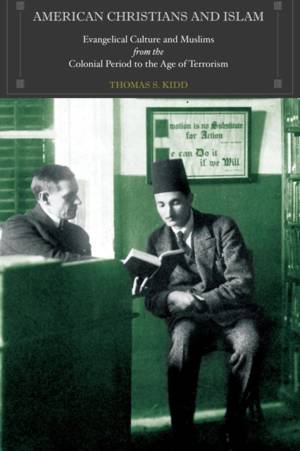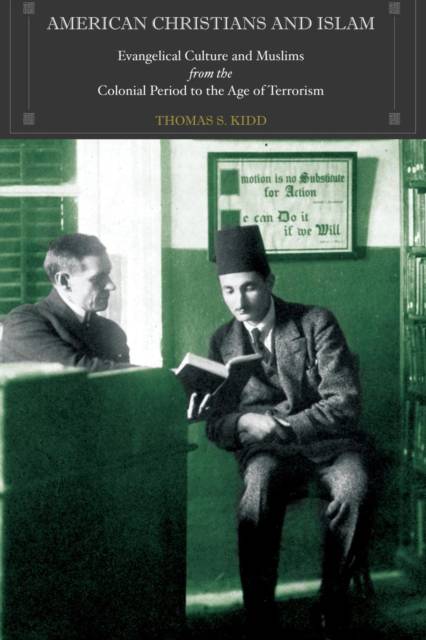
Je cadeautjes zeker op tijd in huis hebben voor de feestdagen? Kom langs in onze winkels en vind het perfecte geschenk!
- Afhalen na 1 uur in een winkel met voorraad
- Gratis thuislevering in België vanaf € 30
- Ruim aanbod met 7 miljoen producten
Je cadeautjes zeker op tijd in huis hebben voor de feestdagen? Kom langs in onze winkels en vind het perfecte geschenk!
- Afhalen na 1 uur in een winkel met voorraad
- Gratis thuislevering in België vanaf € 30
- Ruim aanbod met 7 miljoen producten
Zoeken
American Christians and Islam
Evangelical Culture and Muslims from the Colonial Period to the Age of Terrorism
Thomas S Kidd
Paperback | Engels
€ 36,95
+ 73 punten
Omschrijving
In the wake of the September 11 terrorist attacks, many of America's Christian evangelicals have denounced Islam as a "demonic" and inherently violent religion, provoking frustration among other Christian conservatives who wish to present a more appealing message to the world's Muslims. Yet as Thomas Kidd reveals in this sobering book, the conflicted views expressed by today's evangelicals have deep roots in American history.
Tracing Islam's role in the popular imagination of American Christians from the colonial period to today, Kidd demonstrates that Protestant evangelicals have viewed Islam as a global threat--while also actively seeking to convert Muslims to the Christian faith--since the nation's founding. He shows how accounts of "Mahometan" despotism and lurid stories of European enslavement by Barbary pirates fueled early evangelicals' fears concerning Islam, and describes the growing conservatism of American missions to Muslim lands up through the post-World War II era. Kidd exposes American Christians' anxieties about an internal Islamic threat from groups like the Nation of Islam in the 1960s and America's immigrant Muslim population today, and he demonstrates why Islam has become central to evangelical "end-times" narratives. Pointing to many evangelicals' unwillingness to acknowledge Islam's theological commonalities with Christianity and their continued portrayal of Islam as an "evil" and false religion, Kidd explains why Christians themselves are ironically to blame for the failure of evangelism in the Muslim world.American Christians and Islam is essential reading for anyone seeking to understand the causes of the mounting tensions between Christians and Muslims today.
Specificaties
Betrokkenen
- Auteur(s):
- Uitgeverij:
Inhoud
- Aantal bladzijden:
- 224
- Taal:
- Engels
Eigenschappen
- Productcode (EAN):
- 9780691162300
- Verschijningsdatum:
- 1/12/2013
- Uitvoering:
- Paperback
- Formaat:
- Trade paperback (VS)
- Afmetingen:
- 168 mm x 234 mm
- Gewicht:
- 340 g

Alleen bij Standaard Boekhandel
+ 73 punten op je klantenkaart van Standaard Boekhandel
Beoordelingen
We publiceren alleen reviews die voldoen aan de voorwaarden voor reviews. Bekijk onze voorwaarden voor reviews.









